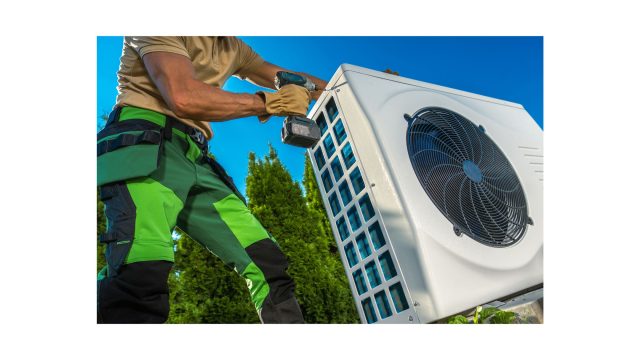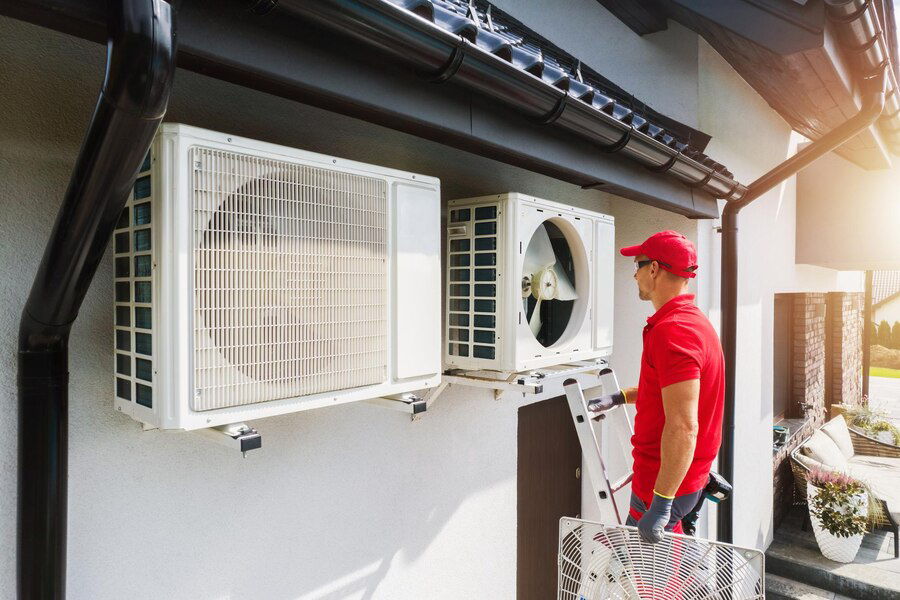In the realm of home maintenance and improvement, few undertakings hold as much potential to enhance both comfort and efficiency as HVAC replacement. Your heating, ventilation, and air conditioning (HVAC) system form the cornerstone of your home’s climate control infrastructure. Yet, as time marches on, even the most robust systems may succumb to wear and tear, inefficiency, or technological obsolescence. It’s in these moments that the prospect of HVAC replacement emerges as a beacon of opportunity. However, navigating the landscape of HVAC replacement services can be daunting. From selecting the right system to understanding installation intricacies and cost considerations, the journey toward a revitalized home climate demands clarity and expertise. In this exploration, we delve into the nuances of HVAC replacement services, demystifying the process to empower homeowners with knowledge and confidence in transforming their living spaces into havens of comfort and sustainability.
Understanding the Need: Signs Your HVAC System Requires Replacement
Your HVAC system silently works to keep your home comfortable, but over time, signs of wear and tear can emerge, signaling the need for replacement. Keep an eye out for increased energy bills despite regular usage, inconsistent temperatures throughout your home, or frequent breakdowns and repairs. Unusual noises such as grinding, banging, or squealing are also red flags. Additionally, if your system is over 10-15 years old, it may be nearing the end of its lifespan. Ignoring these signs can lead to further inefficiencies and discomfort, making it crucial to recognize when your HVAC system requires replacement to restore optimal performance and comfort to your home.

Exploring HVAC Options: Choosing the Right System for Your Home
When exploring HVAC options, selecting the right system for your home is paramount to ensure optimal comfort and efficiency. Here’s a brief guide to navigating the choices:
- Assess Your Needs: Consider factors such as the size and layout of your home, climate, and budget to determine the best system for your needs.
- Understand Types: Explore various HVAC types, including central air conditioning, ductless mini-splits, and heat pumps, to find the one that aligns with your requirements.
- Consult Professionals: Seek guidance from HVAC experts who can provide personalized recommendations based on your home’s specifications and your preferences.
- Consider Efficiency: Look for energy-efficient models with high SEER ratings to minimize energy consumption and reduce utility costs over time.
- Evaluate Features: Review additional features such as programmable thermostats, zoning systems, and air purification options to enhance comfort and indoor air quality.
Ready to take the next step in enhancing your home’s comfort and efficiency with the right HVAC system? Consult with HVAC professionals to explore your options and make an informed decision tailored to your needs and preferences.
Efficiency Matters: How New HVAC Systems Enhance Energy Performance
Upgrading to a new HVAC system offers more than just improved comfort—it can also significantly enhance energy performance. Newer systems are designed to be more energy-efficient, reducing your carbon footprint and lowering your utility bills. High-efficiency models utilize advanced technology such as variable-speed motors and programmable thermostats to optimize energy usage based on your home’s needs. Additionally, proper installation and regular maintenance are essential to ensure peak efficiency and longevity of your HVAC system, providing long-term savings and environmental benefits.
Installation Essentials: What to Expect During the Replacement Process
Replacing your HVAC system involves a series of essential steps to ensure a seamless transition and optimal performance. The process typically begins with a thorough assessment of your home’s heating and cooling needs, followed by selecting the appropriate equipment and preparing the installation site. During installation, skilled technicians will remove the old system, install the new components, and test the system for proper operation. Proper sizing, ductwork installation, and system calibration are critical to maximizing efficiency and comfort. Throughout the process, clear communication with your HVAC provider is essential to address any concerns and ensure satisfaction with the results.
Budgeting for Success: Cost Considerations and Financing Options
When embarking on the journey of HVAC replacement, understanding the financial aspects is paramount for a successful outcome. Budgeting for Success entails careful consideration of cost factors and exploring various financing options to ensure a smooth transition to a new system. Here’s a brief overview:

- Assessing Costs: Understand the expenses involved, including equipment, installation, and potential additional upgrades or modifications.
- Long-Term Savings: Consider the energy efficiency of new systems and calculate potential savings on utility bills over time.
- Rebates and Incentives: Research available rebates, tax credits, or incentives for upgrading to energy-efficient HVAC systems to offset costs.
- Financing Options: Explore financing solutions such as loans, payment plans, or leasing arrangements to make the upfront costs more manageable.
- Return on Investment: Evaluate the return on investment of upgrading to a more efficient system, considering both short-term and long-term benefits.
Budgeting for HVAC replacement involves assessing costs, exploring financing options, and maximizing long-term savings and benefits. By understanding the financial aspects and leveraging available resources, you can achieve a successful HVAC replacement that enhances comfort, efficiency, and sustainability in your home.
Maximizing Lifespan: Maintenance Tips to Prolong Your HVAC System’s Efficiency
Regular maintenance is essential for preserving the efficiency and longevity of your HVAC system. Simple tasks such as replacing air filters regularly, cleaning ducts and vents, and inspecting for leaks or damage can help prevent costly repairs and ensure optimal performance. Professional maintenance services, such as annual inspections and tune-ups, can identify and address potential issues before they escalate, extending the lifespan of your HVAC system and maximizing energy efficiency. By incorporating these maintenance tips into your routine, you can enjoy reliable comfort and performance from your HVAC system for years to come while minimizing energy consumption and environmental impact.
Eco-Friendly Upgrades: Incorporating Sustainable Practices into HVAC Replacement
When it’s time to replace your HVAC system, consider incorporating eco-friendly upgrades and sustainable practices to reduce your environmental footprint and enhance energy efficiency. By embracing these green initiatives, you not only contribute to a healthier planet but also enjoy long-term savings and improved comfort in your home. Here’s how you can incorporate eco-friendly upgrades into your HVAC replacement:
- Opt for Energy-Efficient Equipment: Choose HVAC systems with high SEER ratings to reduce energy consumption and greenhouse gas emissions.
- Explore Renewable Energy Sources: Consider options like geothermal heat pumps or solar-powered systems to further decrease reliance on fossil fuels.
- Implement Smart Thermostats: Install programmable thermostats to optimize energy usage based on your lifestyle and occupancy patterns, reducing waste.
- Invest in Zoning Systems: Divide your home into zones with separate thermostats to heat or cool only occupied areas, minimizing energy waste.
- Use Advanced Controls: Incorporate advanced controls to monitor and adjust your HVAC system remotely, ensuring efficient operation even when you’re away from home.
Incorporating these sustainable practices into your HVAC replacement not only benefits the environment but also enhances comfort and saves you money in the long run. Upgrade your home’s HVAC system today and make a positive impact on both your household and the planet.
Conclusion
Understanding the signs indicating your HVAC system needs replacement is crucial for maintaining comfort and efficiency in your home. Exploring the various HVAC options available allows you to choose the system best suited to your needs, ensuring optimal performance. Investing in a new, energy-efficient HVAC system not only enhances comfort but also reduces energy consumption and environmental impact. Proper installation, budgeting considerations, and maintenance tips further contribute to maximizing the lifespan and efficiency of your HVAC system. When considering HVAC replacement, incorporating eco-friendly upgrades and practices can further enhance sustainability while improving comfort and reducing costs. For expert guidance and seamless HVAC replacement services, contact Best By Farr LLC at 781 Air Park Way Suite #A4, Cottonwood, AZ 86326, or call (928) 282-2250 to schedule a consultation today. Transform your home with a new HVAC system and experience unparalleled comfort and efficiency.


